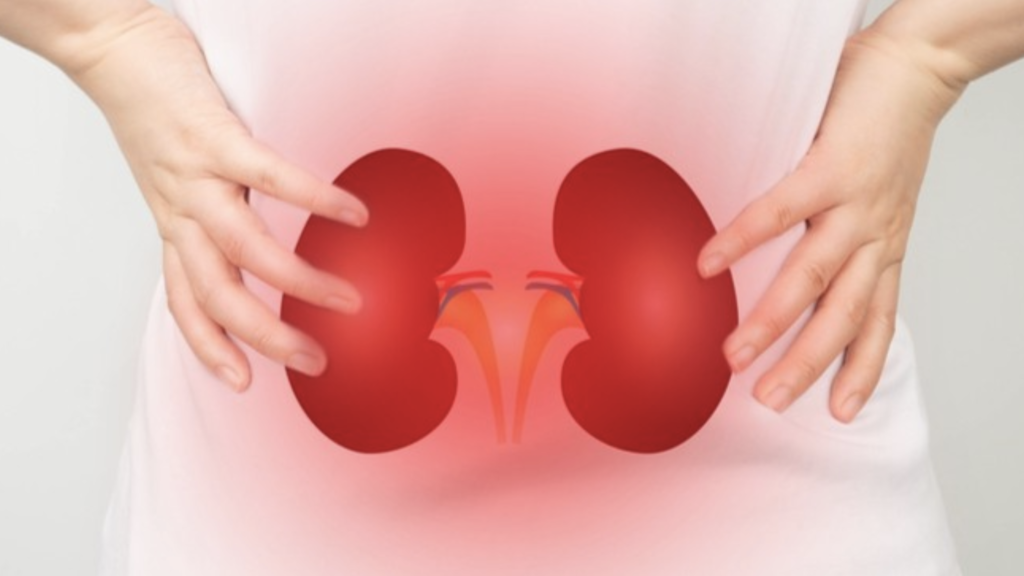
The human body is an intricately designed marvel, and among its many vital components, the kidneys stand as unsung heroes, silently performing a crucial role in maintaining our well-being. However, when the delicate balance within these bean-shaped organs falters, it can lead to a condition known as kidney failure. This ailment, often preceded by Chronic Kidney Disease (CKD), represents a formidable health challenge that affects millions worldwide. In this blog, we embark on a journey to unravel the enigma of kidney failure, exploring the intricacies of CKD symptoms and the profound impact it has on the lives of those affected. Join us as we delve into the complexities of renal health, shedding light on the silent progression and unmistakable signs of this often misunderstood condition.
Anatomy and Function of the Kidneys
To comprehend the implications of kidney failure, it is essential to delve into the intricate anatomy and multifaceted functions that kidneys perform to sustain overall health. Positioned on either side of the spine within the abdominal cavity, the kidneys are indispensable in maintaining the body’s internal equilibrium.
The primary function of the kidneys is to filter the blood, a task carried out by numerous microscopic units called nephrons. These nephrons act as the body’s built-in filtration system, selectively extracting waste products, excess fluids, and electrolytes from the bloodstream. By doing so, the kidneys play a pivotal role in purifying the blood, ensuring that only essential substances are retained while undesirable elements are directed toward the formation of urine.
Regulation of fluid balance is another critical function executed by the kidneys. Through these processes, they manage the body’s water content, preventing dehydration or excessive fluid retention. Electrolyte control is yet another aspect where the kidneys demonstrate their prowess. These organs meticulously manage the levels of electrolytes, such as sodium, potassium, and calcium, in the bloodstream. Imbalances in electrolytes can lead to a range of health issues, emphasizing the kidneys’ role as master regulators in maintaining optimal physiological conditions.
Furthermore, the kidneys contribute significantly to hormone production. They release erythropoietin, a hormone crucial for the production of red blood cells, and renin, which plays a key role in regulating blood pressure. The intricate interplay of these functions underscores the kidneys’ status as not just excretory organs but vital contributors to the overall stability of the body’s internal environment.
Causes of Kidney Failure
Kidney failure, a condition marked by a gradual decline in kidney function, can be triggered by a diverse array of factors. Understanding these causes is crucial for both prevention and effective management. Here, we explore the multifaceted origins of kidney failure:
Diabetes: Diabetes, particularly Type 2 diabetes, is a major contributor to kidney failure. Prolonged high blood sugar levels can damage the small blood vessels in the kidneys, impairing their ability to filter and regulate waste products effectively. This chronic stress on the kidneys, known as diabetic nephropathy, significantly elevates the risk of kidney failure.
Hypertension: Chronic high blood pressure imposes sustained pressure on the delicate blood vessels within the kidneys. Over time, this can lead to nephrosclerosis, a condition characterized by the scarring of renal tissue. The compromised blood flow and increased strain contribute to the development of kidney failure.
Polycystic Kidney Disease (PKD): PKD is a genetic disorder characterized by the formation of fluid-filled cysts within the kidneys. These cysts can gradually replace healthy kidney tissue, impairing function and leading to kidney failure. While the progression of PKD varies among individuals, its impact on renal health is substantial.
Glomerulonephritis: Glomerulonephritis refers to inflammation of the glomeruli, the tiny blood vessels within the nephrons. This inflammation can be triggered by infections, immune system disorders, or other underlying conditions. As the glomeruli become damaged, the kidneys’ ability to filter blood is compromised, contributing to the development of kidney failure.
Autoimmune Disorders: Certain autoimmune diseases, such as lupus and IgA nephropathy, can result in the immune system mistakenly attacking the kidneys. This immune response can lead to inflammation and scarring, impairing kidney function over time.
Medications, Toxins, and Infections: Certain medications, toxins, and infections can directly impact renal health. Nonsteroidal anti-inflammatory drugs (NSAIDs), certain antibiotics, and exposure to heavy metals or chemicals can cause kidney damage. Infections, especially those affecting the urinary tract, can also contribute to the development of kidney failure if left untreated.
The Silent Progression of Chronic Kidney Disease
Chronic Kidney Disease (CKD) is often characterized by its insidious progression, unfolding quietly over an extended period before noticeable symptoms emerge. This silent nature can make early detection challenging, emphasizing the importance of proactive monitoring and screening.
- Subtle Early Signs
In the initial stages of CKD, symptoms may be vague and easily dismissed. Fatigue, a common early indicator, can be attributed to various factors, making it easy for individuals to overlook its significance. Changes in urine output, such as increased frequency or altered colour, may also be present but can be mistakenly attributed to other factors. Swelling, particularly in the ankles and legs, maybe a sign of fluid retention, signalling impaired kidney function.
- Importance of Regular Monitoring
Given the silent progression of CKD, routine monitoring of kidney function is pivotal for early detection. Blood tests, measuring markers like serum creatinine and blood urea nitrogen, provide valuable insights into the kidneys’ ability to filter waste products. Urinalysis, examining the composition of urine, aids in identifying abnormalities in kidney function. Regular check-ups allow healthcare professionals to detect subtle changes and initiate timely interventions.
- Stages of CKD Based on eGFR
The stages of CKD are categorized according to the estimated glomerular filtration rate (eGFR), a measure of how efficiently the kidneys filter blood. Stages range from Stage 1 (mild kidney damage with a normal eGFR) to Stage 5 (kidney failure). This classification serves as a roadmap for healthcare professionals to assess the severity of CKD and tailor interventions accordingly. Early-stage CKD may be asymptomatic or exhibit minimal symptoms, reinforcing the necessity of relying on diagnostic measures rather than overt clinical signs.
Recognizing Chronic Kidney Disease Symptoms
As Chronic Kidney Disease (CKD) progresses, the initially subtle signs evolve into more pronounced symptoms, reflecting the increasing impact on kidney function. Recognizing these manifestations is crucial for individuals to seek timely medical attention and implement appropriate management strategies.
- Persistent Fatigue
Chronic fatigue is a common symptom as CKD advances. The kidneys play a crucial role in producing erythropoietin, a hormone that stimulates the production of red blood cells. In CKD, decreased production of erythropoietin can lead to anaemia, resulting in fatigue and a general sense of lethargy.
- Swelling in Ankles and Legs (Edema)
Impaired kidney function can lead to the retention of salt and water, causing swelling, particularly in the lower extremities. Edema, manifested as swelling in the ankles and legs, is a visible sign of fluid imbalance, indicating compromised kidney filtration.
- Changes in Urine Color and Frequency
Disruptions in urine output become more apparent as CKD progresses. Changes in urine colour, such as darkening or foaming, may occur. Additionally, alterations in frequency, including increased or decreased urine production, can signal underlying kidney dysfunction.
- Difficulty Concentrating and Cognitive Impairment
CKD can impact cognitive function, leading to difficulty concentrating and mental fogginess. The accumulation of waste products that the kidneys would normally filter can affect brain function, contributing to cognitive impairment.
- Hypertension (High Blood Pressure)
Hypertension is both a cause and a consequence of CKD. As the kidneys struggle to regulate fluid balance and blood pressure, hypertension can worsen, creating a detrimental cycle. Elevated blood pressure further damages the delicate blood vessels in the kidneys, accelerating the progression of CKD.
- Complications such as Anemia, Bone Disease, and Electrolyte Imbalances
CKD can give rise to several complications that impact overall health. Anaemia, a common consequence of reduced erythropoietin production, can lead to fatigue and weakness. Bone disease may arise due to alterations in mineral metabolism, impacting bone density. Electrolyte imbalances, including abnormalities in sodium, potassium, and calcium levels, can contribute to a range of health issues.
Conclusion
The journey through the intricacies of kidney failure and chronic kidney disease symptoms has unveiled the profound significance of these vital organs in maintaining our overall health. With their complex anatomy and multifaceted functions, the kidneys serve as the unsung heroes behind the scenes, tirelessly filtering our blood, regulating fluid balance, and producing hormones critical for our well-being.
As we navigate the complexities of kidney health, it becomes evident that knowledge is a powerful tool. Awareness of symptoms allows for early medical attention, paving the way for effective management strategies. Lifestyle modifications, medication management, and, in some cases, advanced interventions like dialysis or transplantation can significantly impact the trajectory of kidney failure.
This exploration serves as a call to action — a reminder of the importance of regular health check-ups, especially for those at risk of kidney-related complications. By fostering a proactive approach to kidney health, we can enhance our understanding of the signs, symptoms, and preventive measures associated with kidney failure.
In the face of this challenging diagnosis, individuals, healthcare professionals, and communities alike play pivotal roles in creating a supportive environment. By uniting in the pursuit of kidney health awareness, we can amplify the impact of preventive measures, improve early detection rates, and ultimately empower individuals to lead fulfilling lives despite the complexities of kidney failure. May this journey through the intricate world of kidney health catalyze informed decisions, a commitment to regular health assessments, and a shared determination to prioritise the well-being of our remarkable renal guardians.
Dr. Sumit Sharma is an experienced urologist, andrologist, and kidney transplant surgeon with over 20 years of clinical experience. He is the founder of the Department of Urology at multiple hospitals in Gurgaon and has established successful kidney transplant programs across the city.
With a commitment to the highest standards, Dr. Sumit Sharma ensures personalised, professional treatment, making your well-being the primary focus. Choose Dr. Sumit Sharma for outstanding Urological care in Gurgaon.



